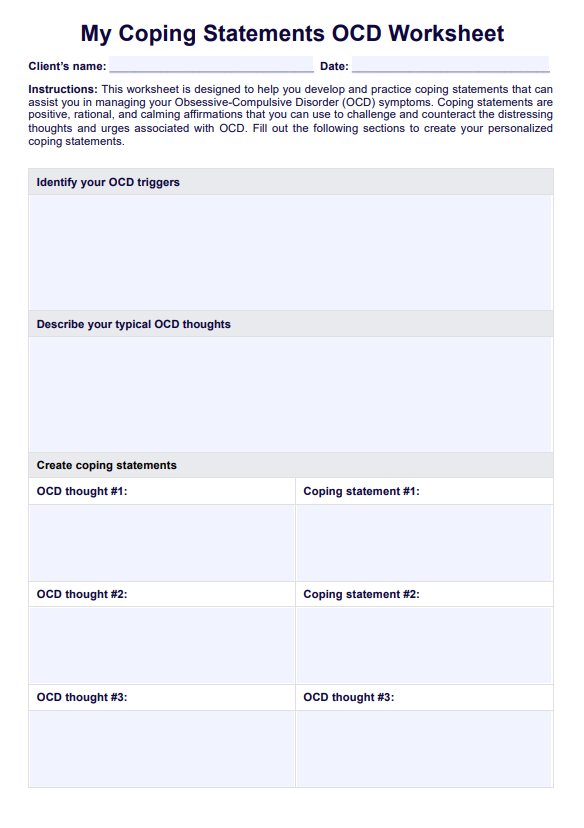This worksheet can be used by individuals diagnosed with OCD and wish to actively participate in managing their symptoms. It can also be used in therapy sessions guided by mental health professionals.

My Coping Statements OCD Worksheet
Enhance mental health with My Coping Statements OCD Worksheet, an effective tool for managing obsessive-compulsive disorder symptoms. Download now.
Use Template
My Coping Statements OCD Worksheet Template
Commonly asked questions
Coping statements provide individuals with a structured and rational way to counteract the distressing thoughts and urges that characterize OCD. They help individuals regain a sense of control and reduce anxiety.
Yes, the worksheet encourages you to create coping statements tailored to your unique OCD triggers and thought patterns. This customization enhances their relevance and effectiveness.
EHR and practice management software
Get started for free
*No credit card required
Free
$0/usd
Unlimited clients
Telehealth
1GB of storage
Client portal text
Automated billing and online payments











